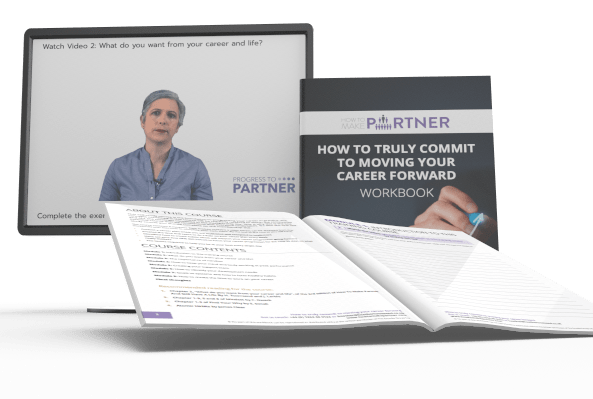It’s not uncommon for individuals in industry to want to realign their goals and aim for partnership. However, if you want to successfully facilitate this career change, you must first consider a) if this is the right decision for you and b) how you intend to transition from industry to practice. Throughout this article, we will outline all you need to know about moving from industry to practice – from the pros and cons of working in industry to building a cast-iron business case for prospective partnerships.
1. Assess your options
Before you dive into developing a case for partnership, you need to assess whether moving from industry to practice is the best decision for you. After all, the grass isn’t always greener on the other side. So let’s discuss the pros and cons of working in industry.
Pros
 Better work-life balance – with fewer working hours and less travel, industry can be an attractive option for those who want a greater work-life balance. Maintained salaries – most companies will match your previous salary, so you can reap the additional industry benefits without losing out on pay! Reduced working hours – with fewer challenges come fewer chargeable hours, meaning you have more time to pursue other interests outside of work.
Better work-life balance – with fewer working hours and less travel, industry can be an attractive option for those who want a greater work-life balance. Maintained salaries – most companies will match your previous salary, so you can reap the additional industry benefits without losing out on pay! Reduced working hours – with fewer challenges come fewer chargeable hours, meaning you have more time to pursue other interests outside of work.
Cons
 You’re limited to a supporting role – moving into a supporting role can be a difficult adjustment for those who have previously been at the centre of their practice. Fewer opportunities for career progression – whilst many professionals could benefit from a better work-life balance, that lifestyle comes at a cost. And in this instance, your career progression is footing the bill. Financial limitations – although you will still receive financial recognition for your efforts, your earnings won’t match that of a senior practice member. Moving from industry to practice isn’t a decision you should take lightly. So make sure you’re assessing your options before making any career-altering decisions. For example, if you don’t feel stretched in your current position, consider finding a more challenging role in industry before applying to practices. After all, leaving industry will only be worthwhile if you’re interested in pursuing partnership. Read: At a career crossroads? 5 essential steps to get unstuck
You’re limited to a supporting role – moving into a supporting role can be a difficult adjustment for those who have previously been at the centre of their practice. Fewer opportunities for career progression – whilst many professionals could benefit from a better work-life balance, that lifestyle comes at a cost. And in this instance, your career progression is footing the bill. Financial limitations – although you will still receive financial recognition for your efforts, your earnings won’t match that of a senior practice member. Moving from industry to practice isn’t a decision you should take lightly. So make sure you’re assessing your options before making any career-altering decisions. For example, if you don’t feel stretched in your current position, consider finding a more challenging role in industry before applying to practices. After all, leaving industry will only be worthwhile if you’re interested in pursuing partnership. Read: At a career crossroads? 5 essential steps to get unstuck
Want to actively advance your career? Download our Career Action Plan Template (for free) to get started with progressing your career to partner.
2. Complete an accurate self-assessment
 a Once you’ve weighed up your options and (definitively) decided to move from industry to practice, you need to assess what you can offer a legal, accountancy or consultancy firm. Otherwise, your interviews, applications and enquiries will fall flat. So, what questions do you need to answer to complete an accurate self-assessment?
a Once you’ve weighed up your options and (definitively) decided to move from industry to practice, you need to assess what you can offer a legal, accountancy or consultancy firm. Otherwise, your interviews, applications and enquiries will fall flat. So, what questions do you need to answer to complete an accurate self-assessment?
1. What personal assets do you have to offer?
When it comes to business, your primary assets are your contacts and technical skills. So, you want to ensure you have something to offer in one or both of these departments. Start with your contacts. Do you have industry connections you could convert into clients? Does your network include senior decision-makers? Could you leverage your contacts to win a key account? If you can offer a firm a cohort of loyal clients, you’re already adding value to their practice. Secondly, assess your skill set. Do you have a specialism? An in-demand or strategically important technical skill? Can your experience strengthen a firm’s credibility within your specific sector? If so, you want to focus on enhancing those unique talents as they will ensure you’re a hot commodity at future firms.
2. Does your skill set align with the firm’s business strategy?
 Hiring someone with little to no sales experience is always a gamble for a firm. Therefore, you want to ensure that you expand your expertise to align with prospective firms’ business strategies in preparation for moving from industry to practice. That way, when you apply for a position, you’re experience is catered specifically to their needs – making your employment less of a risk and more of a mutually beneficial arrangement.
Hiring someone with little to no sales experience is always a gamble for a firm. Therefore, you want to ensure that you expand your expertise to align with prospective firms’ business strategies in preparation for moving from industry to practice. That way, when you apply for a position, you’re experience is catered specifically to their needs – making your employment less of a risk and more of a mutually beneficial arrangement.
3. Can you demonstrate an ability to sell?
Most industry employees aren’t required to sell in their current roles. So, naturally, you must be more creative when demonstrating your sales abilities. Try to collect evidence demonstrating how you have increased internal and external market value over the past 6-12 months. For example, have you expanded your network? Or enhanced your expertise? If so, how have these actions resulted in tangible profits?
Download our free partnership potential self assessment to see what you need to do to be seen as a future partner for your firm.
a
3. Build a cast-iron business case
 If you want to successfully transition from industry to practice, you must present prospective partners with an offer they can’t refuse. Essentially, you’re going to need a cast-iron business case. Thankfully, your self-assessment will have exposed any weak spots in your portfolio, so you can start addressing those issues immediately. However, as a general rule, we recommend focusing on these three areas to ensure you have sufficient evidence to verify your credibility:
If you want to successfully transition from industry to practice, you must present prospective partners with an offer they can’t refuse. Essentially, you’re going to need a cast-iron business case. Thankfully, your self-assessment will have exposed any weak spots in your portfolio, so you can start addressing those issues immediately. However, as a general rule, we recommend focusing on these three areas to ensure you have sufficient evidence to verify your credibility:
Demonstrate evidence of your influence
As we mentioned, evidencing your ability to sell when selling isn’t in your job description is difficult. Difficult, but not impossible. Try to provide specific examples of when you’ve used your influence to implement positive change within your organisation. (If you’re in a senior position, you will persuade people and implement change daily.) You can also provide examples of selling your expertise within your organisation. If you really want to impress your prospective partners, you can also use this evidence to create a personal marketing plan. That way, although you lack experience selling, you at least have a strategy showcasing how you intend to win new clients.
Develop your network
 When moving from industry to practice, your greatest asset is your network. Why? Because you have inside access to a whole host of industry connections! So, you must take advantage of that. 12-24 months before transitioning into practice, focus on developing a strong network of connections. Ideally, you want to connect with individuals who either have the authority or influence to buy into your future firm’s services. Remember, it’s not uncommon for industry professionals to make partner purely based on the strength of their relationships. So, don’t underestimate the value of your network.
When moving from industry to practice, your greatest asset is your network. Why? Because you have inside access to a whole host of industry connections! So, you must take advantage of that. 12-24 months before transitioning into practice, focus on developing a strong network of connections. Ideally, you want to connect with individuals who either have the authority or influence to buy into your future firm’s services. Remember, it’s not uncommon for industry professionals to make partner purely based on the strength of their relationships. So, don’t underestimate the value of your network.
Establish yourself as an expert
This final step is as much about your status as it is about your skill set. You see, although you may not sell your services in your current role, it doesn’t mean you can’t become a widely recognised expert on the subject. So take the time to invest in your image. You can build your profile by speaking at conferences and events, attracting positive press and (of course) establishing an online presence. (It’s amazing how sharing your expertise online can expand your influence, so make sure you’re active on LinkedIn!) These efforts will help build your brand, increase your credibility and ultimately make you the Go-To Expert in your field. So stop declining PR opportunities and start making a name for yourself!  Note to Progress to Partner members: Completing the on-demand course “How to truly commit to moving your career forward” is a great foundation to use to take charge and progress your career. a
Note to Progress to Partner members: Completing the on-demand course “How to truly commit to moving your career forward” is a great foundation to use to take charge and progress your career. a
Make them an offer they can’t refuse
If you’re serious about moving from industry to practice, you must build a cast-iron business case. After all, hiring someone from industry will always be a gamble for your prospective partners. So you need to prove that you can be a valuable asset to their company. Thankfully, if you pad out your portfolio, capitalise on your connections and shout about your skill set, you should soon find yourself on the road to partnership. But remember, the path to partnership is paved with a lot of work. (And it doesn’t get any easier once you’ve reached that milestone.) So make sure you’re fully committed to this career change. Otherwise, you’ll lack the drive and determination it takes to make partner.
Need more help with moving your career forward?
 To see the whole recording and complete the “how to truly commit to moving your career forward” self-study course, along with my 30 other career-enhancing videos, join Progress to Partner for just $1 for a 7-day trial. You’ll also get access to my self-study courses including The Go-To Expert, Creating A Cast-Iron Business Case for Partner, How To Be On Your A-Game Every Day and over 15 years of training and resources supporting people’s career progression in practice bundled into a single location.
To see the whole recording and complete the “how to truly commit to moving your career forward” self-study course, along with my 30 other career-enhancing videos, join Progress to Partner for just $1 for a 7-day trial. You’ll also get access to my self-study courses including The Go-To Expert, Creating A Cast-Iron Business Case for Partner, How To Be On Your A-Game Every Day and over 15 years of training and resources supporting people’s career progression in practice bundled into a single location.








